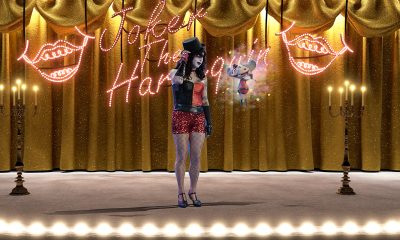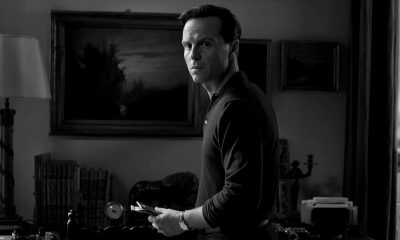Movies
A lesbian thriller, ‘Scream’ returns, and more film, TV options for spring
A host of queer programming on tap for upcoming season
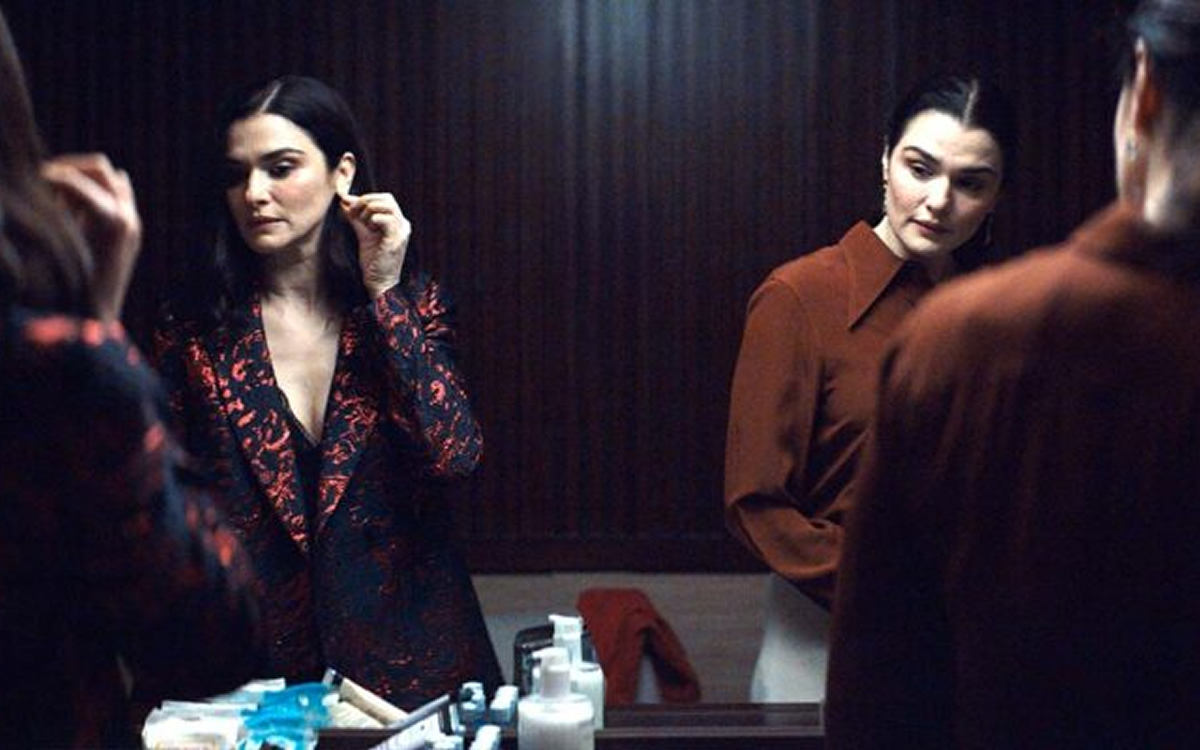
Spring is always an exciting time for queer fans of film and TV, as the entertainment industry shifts its eye to the future and begins to roll out the eagerly awaited movies and shows it has in store for us in the upcoming year. This year is no exception – but while there are several exciting titles announced for 2023’s cinematic lineup (like the Anne Hathaway-starring lesbian thriller “Eileen” and Dan Levy’s directorial film debut “Good Grief”), many of their release dates are slated for later in the year or still to be determined.
That doesn’t mean there aren’t a few good options for queer movie buffs looking for some “spring fresh” cinema, and the Blade has compiled a few suggestions.
MOVIES
The First Fallen (Digital/DVD, available now)
A Brazilian release from 2021 making its debut on US screens, this 1983-set historical drama from writer/director Rodrigo de Oliveira follows a group of small-town LGBTQ men and women as they face the first wave of the AIDS epidemic. We haven’t seen it ourselves yet, but it comes with a five-star Rotten Tomatoes rating and the subject matter strikes a deep communal chord. Johnny Massaro, Renata Carvalho, and Victor Camilio lead the cast.
Lonesome (Digital/DVD, available now)
Another import making its way to U.S. screens, this Australian Outback-meets-big-city romance from director Craig Boreham explores “sexuality, loneliness and isolation in a world that has never been more connected” through the story of a country boy (Josh Lavery) who, fleeing from small-town scandal, arrives in Sydney and meets a city lad (Daniel Gabery) with secrets and struggles of his own. In their new acquaintance, the two young men “find something they have been missing, but neither of them knows quite how to negotiate it.” We don’t want to spoil anything, but since this festival-circuit favorite was praised by reviewers for its masterful use of erotic storytelling, it’s safe to assume they figure it out.
Scream VI (In theaters March 10)
The rebooted horror franchise – originally created by queer screenwriter Kevin Williamson, who in an interview around 2021’s “Scream V” said the movies were “coded in gay survival” – picks up where it left off, as the four survivors the latest Ghostface killings leave Woodsboro behind to start a fresh chapter. Melissa Barrera, Jasmin Savoy Brown, Mason Gooding, Jenna Ortega, Hayden Panettiere, and Courteney Cox return to their roles, joined by Jack Champion, Henry Czerny, Liana Liberato, Dermot Mulroney, Devyn Nekoda, Tony Revolori, Josh Segarra, and Samara Weaving.
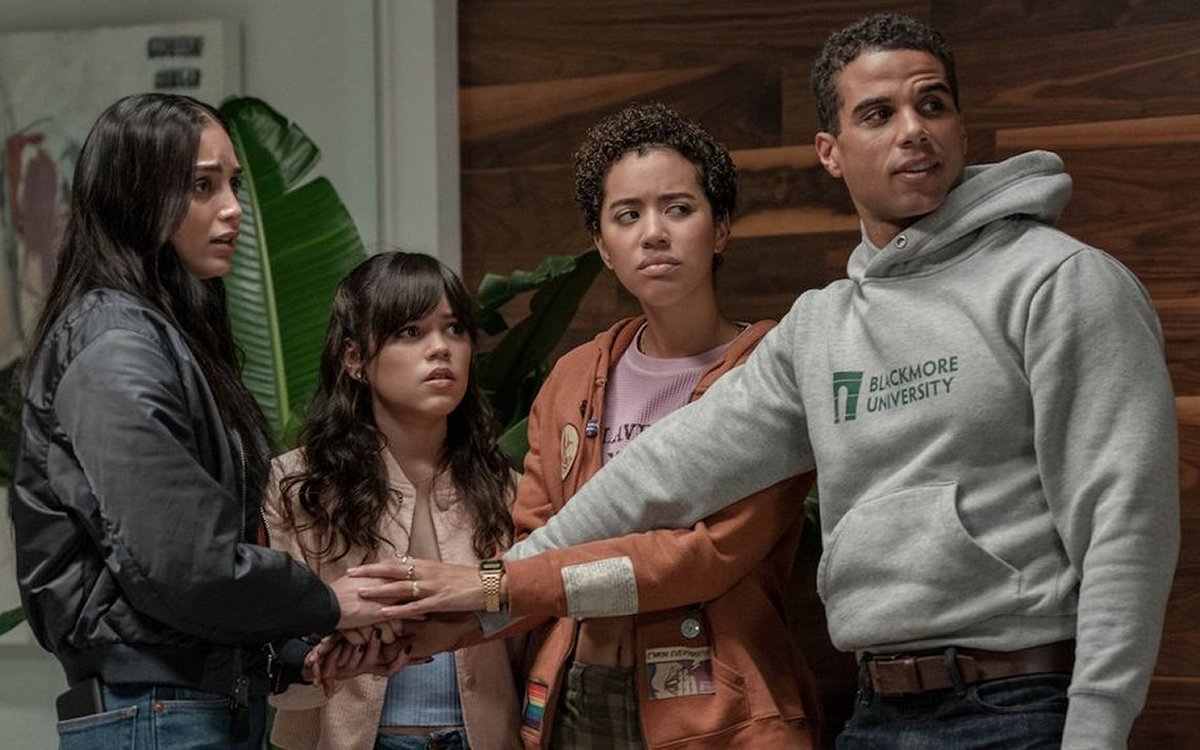
The Tutor (In theaters, March 24)
Recently out “Stranger Things” star Noah Schnapp hits the big screen in this eerie thriller from writer Ryan King and director Jordan Ross, in which an in-demand tutor (Garrett Hedlund) accepts a lucrative offer to take on the son of a wealthy elite family (Schnapp) as his pupil and finds himself becoming the object of an unsettling obsession – a situation that quickly escalates toward the sinister as his creepy new student threatens to tear apart the life he is building with his newly pregnant wife (Victoria Justice) before it even begins. Ekaterina Baker, Jonny Weston, Michael Aaron Milligan, Exie Booker, and Ashritha Kancharla also star.
Dungeons & Dragons: Honor Among Thieves (In theaters March 31)
Yes, the venerable RPG (that’s “role-playing game,” for the uninitiated) played on the tabletops of countless Gen X nerds is coming to the screen once again, this time as a big-budget sword-and-sorcery adventure starring Chris Pine, “Bridgerton” hunk Regé-Jean Page, bi “Fast & Furious” star Michelle Rodriguez, queer actor Justice Smith, and Hugh Grant. Planned as the ambitious launch point for a “multi-pronged” franchise that includes a graphic novel tie-in, an upcoming television spin-off, and a slate of future installments across these and other forms of media, it’s an eagerly awaited roll of the 12-sided dice in an unpredictable market already saturated with tent-pole style entertainment options. After years in development and multiple COVID-related delays, moviegoers – doubtless including millions of queer fantasy fans – will finally get to decide whether or not it was worth the gamble.
Renfield (In theaters April 14)
The renaissance of Nicolas Cage continues with another franchise-ish new action-fantasy, this one more in the in the horror vein – a vein injected with a healthy dose of humor by director Chris McKay (“The Lego Movie”) and screenwriter Ryan Ridley. Nicholas Hoult (“A Single Man,” “The Great”) stars as the title character, the long-suffering lackey of Count Dracula (Cage, in a role it was inevitable he would eventually play), who discovers an unexpected new outlook on life when he falls in love with a traffic cop (Awkwafina) in modern-day New Orleans. Ben Schwartz and Adrian Martinez round out the cast of what looks to be a highly entertaining tall-tale blend of gothic vampire camp and quirky comedic reinvention. As for the LGBTQ connection, well, “Dracula” author Bram Stoker was reputedly queer, and that’s a good enough excuse to give this promising romp a chance.
Little Richard: I Am Everything (In theaters and VOD April 21)
A must-see for fans of both documentaries and classic rock ’n roll, not to mention anyone interested in the story of a unique individual charting his own course of self-expression in a world that wasn’t ready for what he wanted to be, this richly illuminated film profile from director Lisa Cortés was the opening night documentary selection at this year’s Sundance Festival. Framed as a story of “the Black queer origins of rock ’n roll,” it aims to dismantle “the whitewashed canon of American pop music” by positioning its titular subject – whose “real” name was Richard Penniman – as an innovator who forever shaped the genre with his irresistibly flamboyant style and persona. Offering a wealth of archive and performance footage alongside interviews with family, musicians, and cutting-edge Black and queer scholars, the film brings us into an icon’s complicated inner world, “unspooling” his life story with a comprehensive sense of scope and a keen eye for important detail.
Are You There God? It’s Me, Margaret (In theaters April 28)
Fifty-three years after its publication, Judy Blume’s iconic piece of YA fiction comes to the screen for the first time in this adaptation from writer/director Kelly Fremon Craig starring Rachel McAdams and featuring Abby Ryder Fortson as the title character – a sixth-grader who moves to a New Jersey suburb from New York City with her mixed-faith parents (one Christian, one Jewish), prompting her to go on a coming-of-age quest for her religious identity. A touchstone for generations of young readers, the original novel has been a perennial source of controversy – not only does it depict a child allowed the freedom to choose their own religious beliefs, it contains frank discussions of “taboo” issues relatable to young teen girls, like menstruation, bras, and boys. Naturally, that means it has been included, along with other classic titles from among Blume’s work, on countless lists of “banned books” across the five decades since it first saw print. That is more than enough reason to go out and support this female-led screen adaptation with your box office dollars, as far as we’re concerned.
TELEVISION
When it comes to the small screen, spring 2023 brings not as many new shows of queer interest as it does the return of queer favorites we’re already hooked on, like the second seasons of both Showtime’s grim-but-gripping girl scout survival series Yellowjackets (March 24) and HBO’s sweet-and-gentle Somebody Somewhere (April 23). As with the movies, there are numerous upcoming titles that pique our interest, but many of them have yet to announce a premiere date. We’ll include the most enticing of those in our list of new TV series below, so you’ll know to watch for them, but keep in mind some or all of them may not come until later in the year.
Daisy Jones & the Six (Prime Video, now streaming)
Prime Video just dropped is this 10-episode limited series adaptation of Taylor Jenkins Reid’s novel about the rise and fall of a fictional rock group in the Los Angeles music scene of the 1970s, which frames its profile of the Fleetwood Mac-inspired titular band in a pseudo-documentary style and tracks the reasons behind their break-up at the height of their worldwide fame. Offering an attractive cast led by Riley Keogh, Sam Clafln, Camila Morrone, Suki Waterhouse, Will Harrison, Josh Whitehouse, and Timothy Olyphant, and an iconic period setting and subject matter guaranteed to inspire some fabulous costumes, if nothing else, this one has sufficient queer appeal to make our list.
Swarm (Prime Video, March 17)
Speaking of fictional re-imaginings of real-life music icons, multi-hyphenate “Atlanta” creator Donald Glover and playwright/screenwriter Janine Nabers offer up this darkly satirical horror series about fan obsession, centered on a young woman named Dre (Dominique Fishback) who goes to deadly extremes in her “stan-dom” of a certain pop star. No, the star in question isn’t Beyoncé, but her fanbase calls itself “the Swarm,” so you can draw your own conclusions from that. It’s a provocative premise that’s bound to ruffle some feathers, but that’s precisely what gives co-creator Glover his well-deserved reputation for delivering edgy, genre-defying content. All we can say is that if it’s half as unnervingly delightful as the first two seasons of “Atlanta,” we’re on board. Chloe Bailey, Damson Idris, Rickey Thompson, Paris Jackson, Rory Culkin, Kiersey Clemons, and Byron Bowers also star.
Marriage of Inconvenience (Dekkoo, April 6)
Subscribers to gay male-targeted streaming service Dekkoo can look forward to a romantic comedy described as “a 21st century gay version of ‘The Odd Couple’” centered on two mismatched strangers who enter a witness protection program and must pretend to be happily married to each other to keep their identities hidden from the people who want them dead. Series writer/creator Jason T. Gaffney stars as a messy, street-smart dropout with anger issues opposite David Allen Singletary as an even-tempered English professor conditioned to living an orderly, carefully structured life. They have nothing in common and they can’t stand each other, but at least they’re both gay – which, as we all know, is still no guarantee they’ll be able to find common ground. With a clearly campy premise like this, it should still be fun to watch them try.
Dead Ringers (Prime Video, April 21)
Rachel Weisz does double duty in this reimagined expansion of director David Cronenberg’s classic 1988 thriller about identical twin gynecologists who dupe unsuspecting patients into participating in their perverse sexual fantasies. The twist? While Cronenberg’s film featured a pair of male siblings, this one flips the gender of its creepy twins – and in so doing, opens up a whole plethora of queer possibilities to be explored. As anyone familiar with the original already knows, it’s a story full of twisted psychology and grotesque body horror, not for the faint of heart. We can’t wait.
Love & Death (HBO Max, April 27)
Queer fan favorite Elizabeth Olsen (“WandaVision”) stars in this true crime miniseries about real-life “good Christian” Texas housewife Candy Montgomery, who claimed self-defense at her murder trial after taking an axe to the wife of a man with whom she was having an extramarital affair. The lurid story has already been told (in last year’s “Candy,” with Jessica Biel as Montgomery), but with writer/producer David E. Kelley – whose back catalogue includes a host of successful shows from “Doogie Howser, MD” to “Big Little Lies” – behind it, we can be sure that this version will have a unique quality of its own. Jesse Plemons (“Breaking Bad,” “The Power of the Dog”) co-stars as the other half of Candy’s illicit and ill-fated romance, with Lily Rabe as his unfortunate wife; Parick Fugit, Elizabeth Marvel, Tom Pelphrey, Krysten Ritter, and Beth Broderick also star. In this case, perhaps, the queer appeal comes from the irony of watching supposed “good Christian” types engage in the kind of depraved and detrimental behavior they regularly condemn everyone else for – and that’s good enough for us.
As for the shows with launch dates still TBD, the standouts include:
The Idol (HBO) – a buzzy series starring Lily-Rose Depp as an aspiring pop star and Abel “the Weeknd” Tesfaye as the self-help guru with whom she becomes involved. Supporting players include Dan Levy, Da’Vine Joy Randolph, Hank Azaria, and musicians Troye Sivan and Moses Sumney.
Ripley (Showtime) – a limited series adaptation of Patricia Highsmith’s classic 1955 novel “The Talented Mr. Ripley,” with out Irish actor Andrew Scott as its charming-but-sociopathic anti-hero; likely to bring the original story’s gay subtext to the screen much more directly than the 1999 film adaptation starring Matt Damon, it also stars Johnny Flynn and Dakota Fanning.
Fellow Travelers (Showtime) – Matt Bomer and Jonathan Bailey star in this adaptation of Thomas Mallon’s book about two men who begin a volatile clandestine romance while working for the government during the 1950s McCarthy era. Allison Williams also stars.
Glamorous (Netflix) – Created by Jordon Nardino (“Star Trek: Discovery”) and Damon Wayans Jr., this Brooklyn-set drama centers on a gender-non-conforming youth (Miss Benny) who falls under the wing of a high-fashion makeup mogul (Kim Cattrall), and features guest stars like Matt Rogers, Joel Kim Booster, and Monét X Change. Sounds fabulous.
Happy viewing!
Movies
After 25 years, a forgotten queer classic reemerges in 4K glory
Screwball rom-com ‘I Think I Do’ finds new appreciation

In 2024, with queer-themed entertainment available on demand via any number of streaming services, it’s sometimes easy to forget that such content was once very hard to find.
It wasn’t all that long ago, really. Even in the post-Stonewall ‘70s and ‘80s, movies or shows – especially those in the mainstream – that dared to feature queer characters, much less tell their stories, were branded from the outset as “controversial.” It has been a difficult, winding road to bring on-screen queer storytelling into the light of day – despite the outrage and protest from bigots that, depressingly, still continues to rear its ugly head against any effort to normalize queer existence in the wider culture.
There’s still a long way to go, of course, but it’s important to acknowledge how far we’ve come – and to recognize the efforts of those who have fought against the tide to pave the way. After all, progress doesn’t happen in a vacuum, and if not for the queer artists who have hustled to bring their projects to fruition over the years, we would still be getting queer-coded characters as comedy relief or tragic victims from an industry bent on protecting its bottom line by playing to the middle, instead of the (mostly) authentic queer-friendly narratives that grace our screens today.
The list of such queer storytellers includes names that have become familiar over the years, pioneers of the “Queer New Wave” of the ‘90s like Todd Haynes, Gus Van Sant, Gregg Araki, or Bruce LaBruce, whose work at various levels of the indie and “underground” queer cinema movement attracted enough attention – and, inevitably, notoriety – to make them known, at least by reputation, to most audiences within the community today.
But for every “Poison” or “The Living End” or “Hustler White,” there are dozens of other not-so-well-remembered queer films from the era; mostly screened at LGBTQ film festivals like LA’s Outfest or San Francisco’s Frameline, they might have experienced a flurry of interest and the occasional accolade, or even a brief commercial release on a handful of screens, before slipping away into fading memory. In the days before streaming, the options were limited for such titles; home video distribution was a costly proposition, especially when there was no guarantee of a built-in audience, so most of them disappeared into a kind of cinematic limbo – from which, thankfully, they are beginning to be rediscovered.
Consider, for instance, “I Think I Do,” the 1998 screwball romantic comedy by writer/director Brian Sloan that was screened last week – in a newly restored 4K print undertaken by Strand Releasing – in Brooklyn as the Closing Night Selection of NewFest’s “Queering the Canon” series. It’s a film that features the late trans actor and activist Alexis Arquette in a starring, pre-transition role, as well as now-mature gay heartthrob Tuc Watkins and out queer actor Guillermo Diaz in supporting turns, but for over two decades has been considered as little more than a footnote in the filmographies of these and the other performers in its ensemble cast. It deserves to be seen as much more than that, and thanks to a resurgence of interest in the queer cinema renaissance from younger film buffs in the community, it’s finally getting that chance.
Set among a circle of friends and classmates at Washington, D.C.’s George Washington University, it’s a comedic – yet heartfelt and nuanced – story of love left unrequited and unresolved between two roommates, openly gay Bob (Arquette) and seemingly straight Brendan (Christian Maelen), whose relationship in college comes to an ugly and humiliating end at a Valentine’s Day party before graduation. A few years later, the gang is reunited for the wedding of Carol (Luna Lauren Vélez) and Matt (Jamie Harrold), who have been a couple since the old days. Bob, now a TV writer engaged to a handsome soap opera star (Watkins), is the “maid” of honor, while old gal pals Beth (Maddie Corman) and Sarah (Marianne Hagan), show up to fill out the bridal party and pursue their own romantic interests. When another old friend, Eric (Diaz), shows up with Brendan unexpectedly in tow, it sparks a behind-the-scenes scenario for the events of the wedding, in which Bob is once again thrust into his old crush’s orbit and confronted with lingering feelings that might put his current romance into question – especially since the years between appear to have led Brendan to a new understanding about his own sexuality.
In many ways, it’s a film with the unmistakable stamp of its time and provenance, a low-budget affair shot at least partly under borderline “guerilla filmmaking” conditions and marked by a certain “collegiate” sensibility that results in more than a few instances of aggressively clever dialogue and a storytelling agenda that is perhaps a bit too heavily packed. Yet at the same time, these rough edges give it a raw, DIY quality that not only makes any perceived sloppiness forgivable, but provides a kind of “outsider” vibe that it wears like a badge of honor. Add to this a collection of likable performances – including Arquette, in a winning turn that gets us easily invested in the story, and Maelen, whose DeNiro-ish looks and barely concealed sensitivity make him swoon-worthy while cementing the palpable chemistry between them – and Sloan’s 25-year-old blend of classic Hollywood rom-com and raunchy ‘90s sex farce reveals itself to be a charming, wiser-than-expected piece of entertainment, with an admirable amount of compassion and empathy for even its most stereotypical characters – like Watkins’ soap star, a walking trope of vainglorious celebrity made more fully human than appearances would suggest by the actor’s honest, emotionally intelligent performance – that leaves no doubt its heart is in the right place.
Sloan, remarking about it today, confirms that his intention was always to make a movie that was more than just frothy fluff. “While the film seems like a glossy rom-com, I always intended an underlying message about the gay couple being seen as equals to the straight couple getting married,” he says. “ And the movie is also set in Washington to underline the point.”
He also feels a sense of gratitude for what he calls an “increased interest from millennials and Gen Z in these [classic queer indie] films, many of which they are surprised to hear about from that time, especially the comedies.” Indeed, it was a pair of screenings with Queer Cinema Archive that “garnered a lot of interest from their followers,” and “helped to convince my distributor to bring the film back” after being unavailable for almost 10 years.
Mostly, however, he says “I feel very lucky that I got to make this film at that time and be a part of that movement, which signaled a sea change in the way LGBTQ characters were portrayed on screen.”
Now, thanks to Strand’s new 4K restoration, which will be available for VOD streaming on Amazon and Apple starting April 19, his film is about to be accessible to perhaps a larger audience than ever before.
Hopefully, it will open the door for the reappearance of other iconic-but-obscure classics of its era and help make it possible for a whole new generation to discover them.
Movies
Trans filmmaker queers comic book genre with ‘People’s Joker’
Alternative ‘Batman’ universe a medium for mythologized autobiography
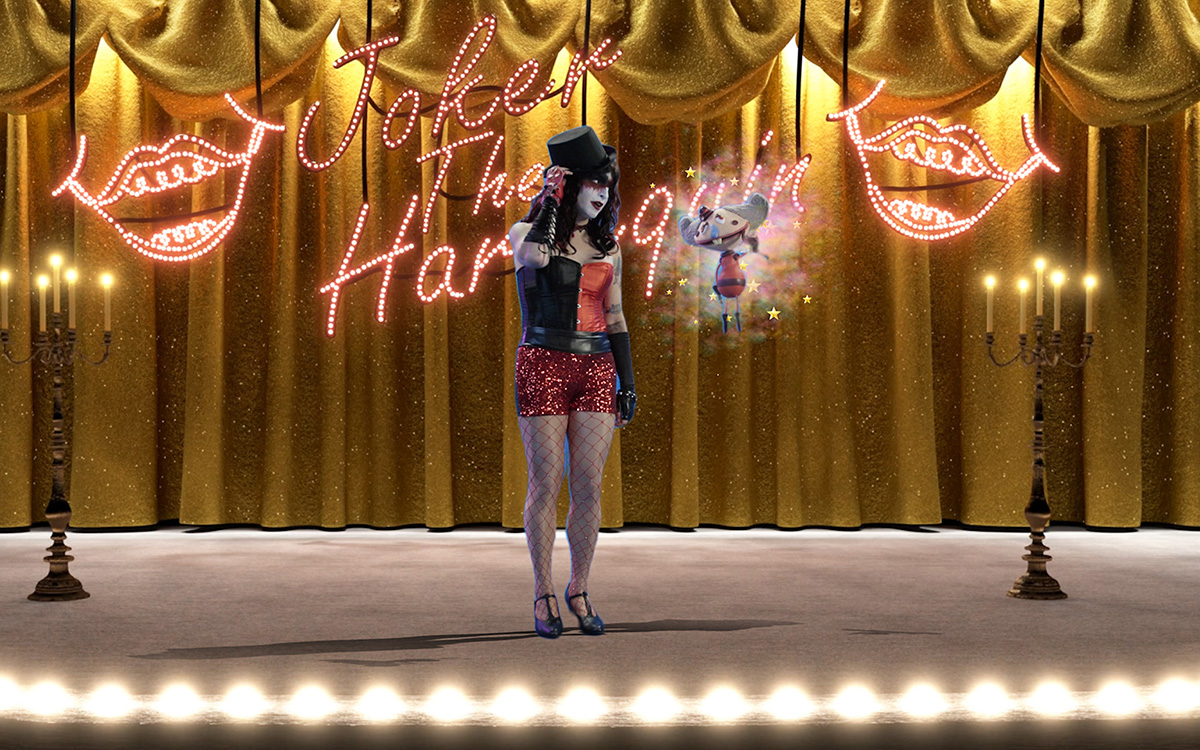
It might come as a shock to some comic book fans, but the idea of super heroes and super villains has always been very queer. Think about it: the dramatic skin-tight costumes, the dual identities and secret lives, the inability to fit in or connect because you are distanced from the “normal” world by your powers – all the standard tropes that define this genre of pop culture myth-making are so rich with obviously queer-coded subtext that it seems ludicrous to think anyone could miss it.
This is not to claim that all superhero stories are really parables about being queer, but, if we’re being honest some of them feel more like it than others; an obvious example is “Batman,” whose domestic life with a teenage boy as his “ward” and close companion has been raising eyebrows since 1940. The campy 1960s TV series did nothing to distance the character from such associations – probably the opposite, in fact – and Warner Brothers’ popular ‘80s-’90s series of film adaptations solidified them even more by ending with gay filmmaker Joel Schumacher’s much-maligned “Batman and Robin,” starring George Clooney and Chris O’Donnell in costumes that highlighted their nipples, which is arguably still the queerest superhero movie ever made.
Or at least it was. That title might now have to be transferred to “The People’s Joker,” which – as it emphatically and repeatedly reminds us – is a parody in no way affiliated with DC’s iconic “Batman” franchise or any of its characters, even though writer, director and star Vera Drew begins it with a dedication to “Mom and Joel Schumacher.” Parody it may be, but that doesn’t keep it from also serving up lots of food for serious thought to chew on between the laughs.
Set in a sort of comics-inspired dystopian meta-America where unsanctioned comedy is illegal, it’s the story of a young, closeted transgender comic (Drew) who leaves her small town home to travel to Gotham City and audition for “GCB” – the official government-produced sketch comedy show. Unfortunately, she’s not a very good comic, and after a rocky start she decides to leave to form a new comedy troupe (labeled “anti-comedy” to skirt legality issues) along with penguin-ish new friend Oswald Cobblepot (Nathan Faustyn). They collect an assortment of misfit would-be comedians to join them, and after branding herself as “Joker the Harlequin,” our protagonist starts to find her groove – but it will take negotiating a relationship with trans “bad boy” Mr. J (Kane Distler), a confrontation with her self-absorbed and transphobic mother (Lynn Downey), and making a choice between playing by the rules or breaking them before she can fully transition into the militant comic activist she was always meant to be.
Told as a wildly whimsical, mixed media narrative that combines live action with a quirky CGI production design and multiple styles of animation (with different animators for each sequence), “People’s Joker” is by no means the kind of big-budget blockbuster we expect from a movie about a superhero — or in this case, supervillain, though the topsy-turvy context of the story more or less reverses that distinction — but it should be obvious from the synopsis above that’s not what Drew was going for, anyway. Instead, the Emmy-nominated former editor uses her loopy vision of an alternative “Batman” universe as the medium for a kind of mythologized autobiography expressing her own real-life journey, both toward embracing her trans identity and forging a maverick career path in an industry that discourages nonconformity, while also spoofing the absurdities of modern culture. Subverting familiar tropes, yet skillfully weaving together multiple threads from the “real” DC Universe she’s appropriated with the detailed savvy of a die-hard fangirl, it’s an accomplishment likely to impress her fellow comic book fans — even if they can’t quite get behind the gender politics or her presentation of Batman himself (an animated version voiced by Phil Braun) as a closeted gay right-wing demagogue and serial sexual abuser.
These elements, of course, are meant to be deliberately provocative. Drew, like her screen alter ego, is a confrontation comic at heart, bent on shaking up the dominant paradigm at every opportunity. Yet although she takes aim at the expected targets – the patriarchy, toxic masculinity, corporate hypocrisy, etc. – she is equally adept at scoring hits against things like draconian ideals of political correctness and weaponized “cancel culture”, which are deployed with extreme prejudice from idealogues on both sides of the ideological divide. This means she might be risking the alienation of an audience which might otherwise be fully in her corner – but it also provides the ring of unbiased personal truth that keeps the movie from sliding into propaganda and elevates it, like “Barbie”, to the level of absurdist allegory.
Because ultimately, of course, the point of “People’s Joker” has little to do with the politics and social constructs it skewers along the way; at its core, it’s about the real human things that resonate with all of us, regardless of gender, sexuality, ideology, or even political parties: the need to feel loved, to feel supported, and most of all, to be fully actualized. That means the real heart of the film beats in the central thread of its troubled connection between mother and daughter, superbly rendered in both Drew and Downey’s performances, and it’s there that Joker is finally able to break free of her own self-imposed restrictions and simply “be” who she is.
Other performances deserve mention, too, such as Faustyn’s weirdly lovable “Penguin” stand-in and Outsider multi-hyphenate artist David Leibe Hart as Ra’s al Ghul – a seminal “Batman” villain here reimagined as a veteran comic that serves as a kind of Obi-Wan Kenobi figure in Joker’s quest. In the end, though, it’s Drew’s show from top to bottom, a showcase for not only her acting skills, which are enhanced by the obvious intelligence (including the emotional kind) she brings to the table, but her considerable talents as a writer, director, and editor.
For some viewers, admittedly, the low-budget vibe of this crowd-funded film might create an obstacle to appreciating the cleverness and artistic vision behind it, though Drew leans into the limitations to find remarkably creative ways to convey what she wants with the means she has at her disposal. Others, obviously, will have bigger problems with it than that. Indeed, the film, which debuted at the 2022 Toronto International Film Festival, was withdrawn from competition there and pulled from additional festival screenings after alleged corporate bullying (presumably from Warner Brothers, which owns the film rights to the Batman franchise) pressured Drew into holding it back. Clearly, concern over blowback from conservative fans – who would likely never see the film anyway – was enough to warrant strong arm techniques from nervous execs. Nevertheless, “The People’s Joker” made its first American appearance at LA’s Outfest in 2023, and is now receiving a rollout theatrical release that started on April 5 in New York, and continues this week in Los Angeles, with Washington DC and other cities to follow on April 12 and beyond.
If you’re in one of the places where it plays, we say it’s more than worth making the effort. If you’re not, never fear. A VOD/streaming release is sure to come soon.
Movies
Star turn makes excellent ‘Ripley’ a showcase for Andrew Scott
Reasserting the queerness of an author who boldly pushed boundaries
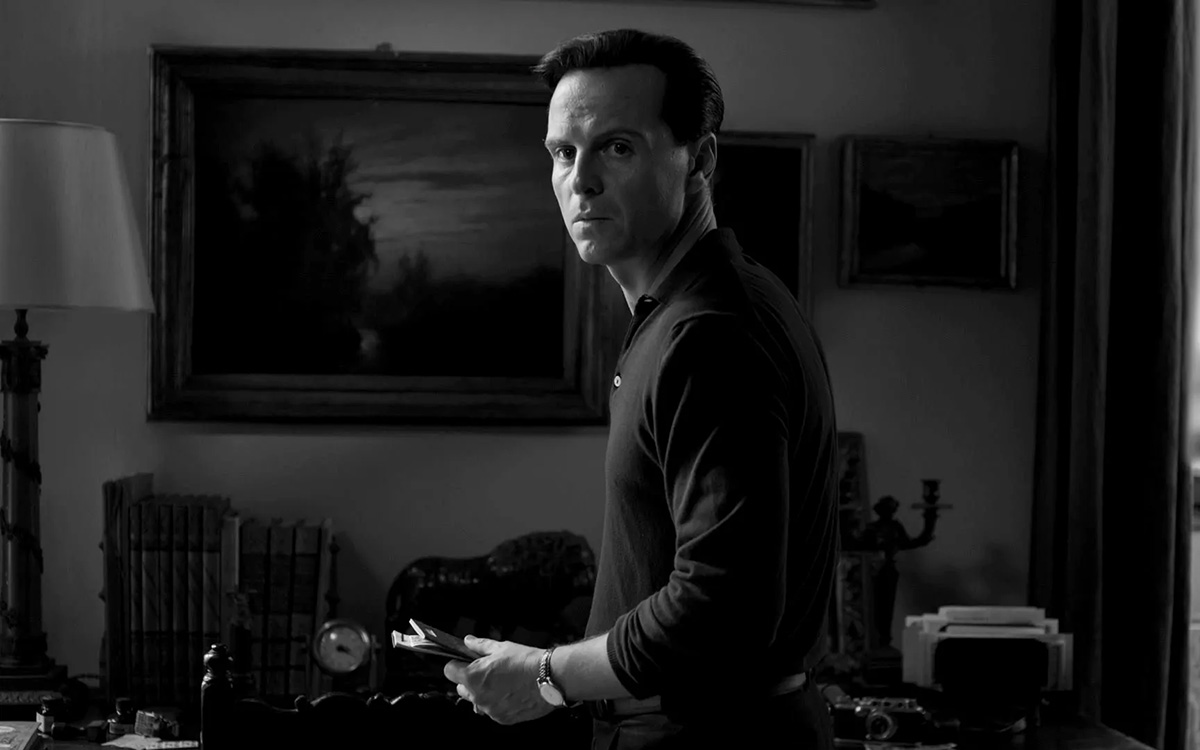
There’s something about an anti-hero that appeals to us all. Why else would so many of our greatest stories revolve around a character whose behavior goes against everything we’ve been raised to believe is right?
Actually, that question probably answers itself. For many of us, the things we are raised to accept about life in the human world often feel less acceptable once we’ve gone through a few years of adult experience, which tends to put us at odds with the so-called “norms” of conformity. Naturally, this can be frustrating from time to time – and while that might not be enough to make us go “rogue” without regard law or ethics, it’s certainly sufficient to fuel our guilty fantasies.
That, along with the literary skills of Patricia Highsmith, the queer novelist who created him, is why the character of Tom Ripley has been engrossing us in various forms for nearly 75 years. The eponymous anti-hero of “The Talented Mr. Ripley” (originally published in 1955) went on to feature in three additional books by Highsmith, and was subsequently brought to life in multiple small-and-big-screen incarnations, perhaps most prominently by Matt Damon in Anthony Minghella’s 1999 film adaptation. These versions managed to skirt the book’s obvious queer subtext, but queer audiences recognized it anyway. Now, thanks to creator, writer, and director Steve Zaillian, Highsmith’s starry-eyed sociopath has returned in an eight-episode series – which pares the title down to the short-but-evocative “Ripley” – that debuts on Netflix April 4, and portrays his adventures with an eye toward honoring Highsmith’s intent while delivering the kind of up-front queerness that the author could never have dreamed of accomplishing in her heyday.
Not that this “Ripley” is exactly “out and proud,” though the actor who plays him – Andrew Scott (“All of Us Strangers”) – certainly is. The acclaimed Irish thespian brings his own queerness to the table in illuminating a character whose survival depends on never calling attention to himself – and though the series moves the action ahead a few years to1960, it’s still a world where any hint of “deviance” is likely to draw suspicion. That’s the last thing Tom Ripley needs; he’s a con artist, the mid-20th-century equivalent of modern-day “phishing” scammers, grifting gullible marks from his squalid, one-room New York City apartment. He’s good at what he does, an anonymous figure hiding in a sea of strangers – but when a wealthy shipping magnate tracks him down with a request for help and the offer of an all-expenses-paid excursion to Italy, he sees it as an opportunity to change his life for the better.
That opportunity, as it turns out, involves a barely remembered college acquaintance named Dickie (Johnny Flynn), whose post-graduation trip to Europe has become a years-long vacation on the Mediterranean coast from which his father – Ripley’s surprise benefactor – would like him to return. Sent on a mission to convince his old schoolmate to go home, he is instead spellbound by the idyllic seaside setting and opulent lifestyle that surrounds him – and also by Dickie himself. He ingratiates himself into the young man’s life, winning his sympathies despite some initial awkwardness. Not so easily persuaded is Dickie’s girlfriend, Marge (Dakota Fanning), whose lingering distrust must be overcome if Ripley is to enact his new master plan to claim Dickie’s life of expatriate luxury as his own.
Thanks to its source’s relative familiarity, “Ripley” makes no effort to hide the fact that its anti-hero is a shady guy; we see from the start that he’s a liar and an opportunist. What Zaillian manages to do, unlike others who have adapted the novel, is move past a clinical focus on Ripley’s psychology to give us a less prosaic – and therefore more complex – interpretation of the character. Much of this comes from a script that echoes Highsmith’s hard-boiled style by framing the story (and its protagonist) in a shadowy, amoral universe, enhanced by the stylish black-and-white treatment delivered by Robert Elswit’s cinematography, which leans into both the paradigm-challenging Euro “art cinema” from the period of its setting and the gritty chiaroscuro contrasts of film noir, setting up an instinctual understanding that this narrative, like its visuals, is composed entirely in shades of gray.
In the show’s engrossing first episode, this is a particularly effective hook, style coupling with context to underscore the bleakness of Ripley’s daily routine in New York, which is no less soul-crushing, perhaps, than the more lawful ones into which most of us are locked. Though we see that he’s a predator, it’s hard not to relate to his struggle, and by the time we get to the next chapter and meet Dickie and Marge, we’ve already entered a mindset in which easy ethical judgments become unconvincing and shallow. Our sympathies are effectively split; we’re either on nobody’s side or on everyone’s, and maybe it’s a little bit of both.
Needless to say, perhaps, this tricky transference would not be possible without the presence of a consummate actor in the title role, and Scott fits the bill beyond expectation. Though at first he reads as a bit old for the character, that notion quickly disperses – indeed, his weathered features bespeak the effects of a hard-knock life, the kind that makes a person willing to do anything to break free. More crucially, the unmistakable authenticity of his inner life is communicated with exquisite precision, engaging our empathy even as we recoil from the Machiavellian logic that guides him, and the clear conflict between his not-so-hidden feelings for Dickie and the agenda to which he has committed is made all the more stark by the ring of queer truth that underpins the performance. It’s a tour-de-force turn by an actor whose skills become more breathtaking with each subsequent role.
Fanning, whose equally adept performance provides a powerful counterpoint to Scott’s, is a strong contender for our sympathies, by virtue as much of the intelligence she brings as the peril into which it will eventually put her, and Flynn’s Dickie wears the weight and damage of his upper class status like a chain he can never quite break, making us dread the seemingly inevitable fate that awaits him even as we subliminally sign on to Ripley’s endgame with a sense of guilty (but unapologetic) satisfaction. Also notable is nonbinary actor Eliot Summers (child of former Police frontman Sting), who brings another level of queer identity into the narrative as another old acquaintance of Dickie’s that throws an unwelcome wrench into the works of Ripley’s plan.
Based on its first two episodes, “Ripley” certainly lives up to the anticipation that naturally awaits any adaptation of a high-profile story, and reasserts the queerness of an author who boldly pushed boundaries as far as censors of her time would allow. That’s more than enough to warrant staying with it until the end – and, if audience numbers warrant a renewal, through additional installments that might chronicle the less well-known escapades spun in Highsmith’s sequels. What cinches the deal, though, is the masterful performance that takes centerstage, which represents yet another escalation – and well-deserved triumph – in the rise of the talented Mr. Scott.
-

 Africa5 days ago
Africa5 days agoCongolese lawmaker introduces anti-homosexuality bill
-

 District of Columbia1 day ago
District of Columbia1 day agoReenactment of first gay rights picket at White House draws interest of tourists
-

 World5 days ago
World5 days agoOut in the World: LGBTQ news from Europe and Asia
-

 Arizona2 days ago
Arizona2 days agoAriz. governor vetoes anti-transgender, Ten Commandments bill

